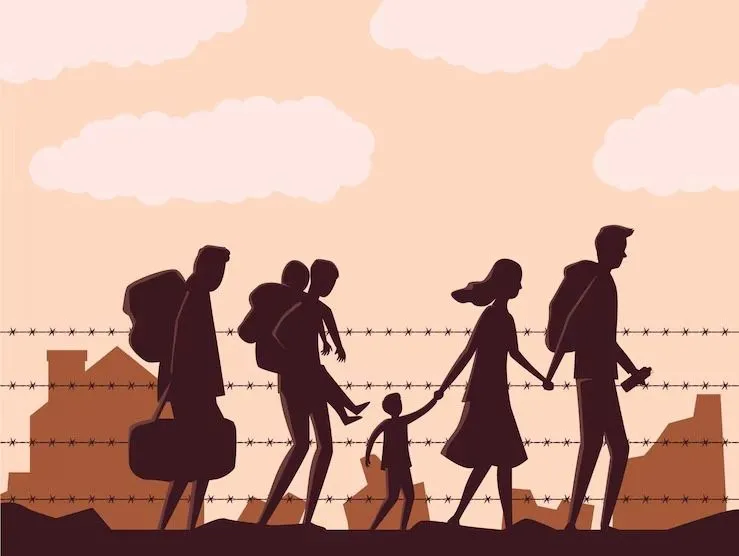JUSTICE TAKES TIME, BUT ALWAYS COMES: THE CASE OF PEÑAS COLORADAS

The displacement of Peñas Coloradas, a clear example that justice takes time to arrive, but it does arrive; more than 20 years after the displacement, a first instance conviction is issued in the judicial process.
El caso de Peñas Coloradas es uno de los más emblemáticos y trágicos de desplazamiento forzado en la historia reciente de Colombia. Ubicado en el departamento del Caquetá, municipio de Cartagena del Chairá. Peñas Coloradas era una comunidad rural que se encontraba en plena selva amazónica colombiana. By the end of the 20th century and the beginning of the 21st century, the Caquetá region became a key scenario of the war on drugs and the internal armed conflict in Colombia. The presence of illegal armed groups, such as the Revolutionary Armed Forces of Colombia (FARC) and the National Liberation Army (ELN), generated a climate of violence and terror in the region.
In April 2004, the community of Peñas Coloradas was displaced by order of the Military Forces. This population, which consisted of approximately 700 families, was forced to abandon their homes and land to seek refuge in safer areas. The displacement was particularly tragic because of the manner in which it was carried out. The military forces deployed their operations against the inhabitants, forcing them to abandon their homes and belongings; many of the displaced were forced to walk for days to reach safer areas, without access to food, water or medical attention. The Army's incursion was completed with a gratuitous bailment granting the National Army the right to establish a military base in the territory, which persists to this day.
More than 20 years later, that is, in August 2024, within the group action initiated by the affected community, the first instance sentence was issued, in which the Nation-Ministry of Defense-National Army was condemned and declared administratively and extracontractually liable for the damages caused to the settlers as a consequence of the forced displacement of which they were victims. With this ruling, the Peñunos receive a piece of peace of mind, and although it is not a final judicial decision, more than two decades later, they are beginning to see glimpses of justice for the grave human rights violations of which they were victims.
Today, the process is in second instance to resolve the appeals that were filed. One of the aspects to be reviewed by the Administrative Court of Caquetá will be about the people who, despite having sued in time, were not recognized as victims of displacement. The case of Peñas Coloradas is a clear example that the actors in the conflict can be multiple, including the Colombian State. The Peñas Coloradas community was never able to return to their homes and lands, and many of its members continue to live in conditions of poverty and vulnerability, waiting for the State itself to compensate them for the damage suffered.